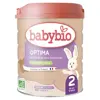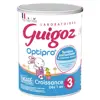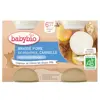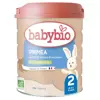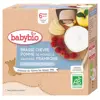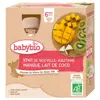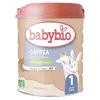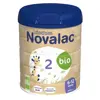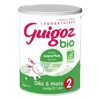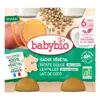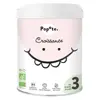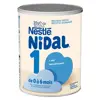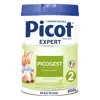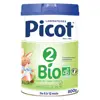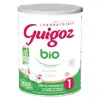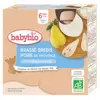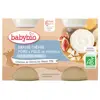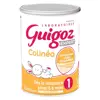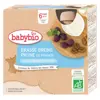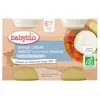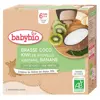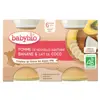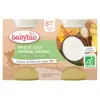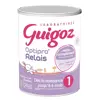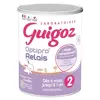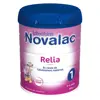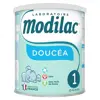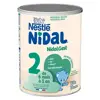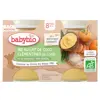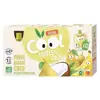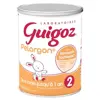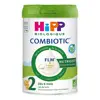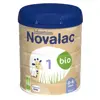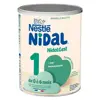Infant Milk Formulas

A large choice of milks for your infant
Powdered infant milks are designed for infants from their birth when the mother cannot or does not wish to breastfeed.
Breast milk is the food the most adapted to the specific needs of infants up until they are 6 months old. However, if you decide to feed your baby with infant milk, you must choose based on the nutritional needs of the child, which change at each stage of his or her life (especially during their first year). Different baby milks are, for the most part, from cows: the milk is therefore subject to several changes to best adjust it to the needs of the child. Alternatives to cows milk also exist with goat, rice and soya milk. The best infant milks are those which are best adapted to the specific needs of each child.
- Aged 0 to 6 months, the infant needs a Stage 1 Infant Milk Formula containing the elements essential for good brain and muscular development (essential fatty acids, mineral salts, potassium, calcium, magnesium, vitamin complexes, slow-burning sugars and fast-burning sugars) dosed at the lowest level possible so as not to overwhelm the baby's kidneys.
- When baby is 6 to 12 months old, the follow-up milk or "Stage 2 Milk" is particularly recommended, because it is designed for babies entering the stage of dietary diversification.
- For those older than 12 months, the Stage 3 Milk, or growing up milk, is particularly adapted to their needs: less rich in protein, and with more vitamins. Their daily consumption, (around 500ml) covers the needs of children between 1 and 3 years old.
- Between 24 and 36 months, baby's specific nutritional needs can be covered by Junior Milks (or 4th Age milks), as a compliment to a varied diet. These infant milks continue to give children the elements they need for growth, stimulation (brain development) and good health (immune system protection).
Finally, this cateogry also helps you to discover organic origin milks to give the best to your baby.
- Baby Milk 1st Age 0-6 months
- Baby Milk 2nd Age 6-12 months
- Growing-Up Milk >12 months
- Junior Milk >24 months
- Organic Baby Milk
